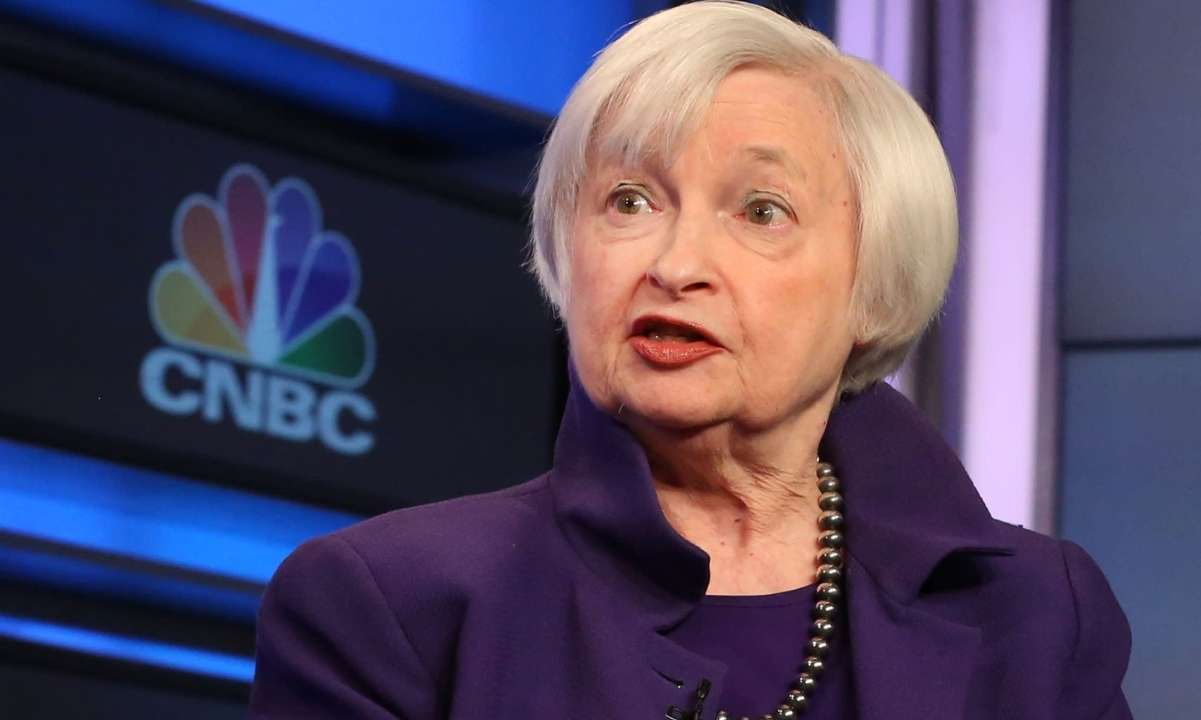US Treasury Secretary Janet Yellen Warns of Global Economic Impact of War in Ukraine
US Treasury Secretary Janet Yellen alerted that Putin’s “special military operation” in Ukraine “will have enormous economic repercussion for the world.” She added that the US authorities plan to impose further sanctions on Russia and provide aid to Ukraine.
Russia’s Attack Could Cause a Major Hit to the Global Economy
Despite the recent reports that Vladimir Putin’s forces are withdrawing from the surroundings of Kyiv, the military conflict in Ukraine seems nowhere near the end. Moreover, earlier this week, the atrocities of the war reached their peak when Russian soldiers allegedly executed hundreds of innocent Ukrainians in the town of Bucha. Unsurprisingly, Putin denied the news, calling it a “crude and cynical” provocation.
The Western world, though, strongly opposed the massacre as even Pope Francis kissed the Ukrainian flag in honor of the “martyred” town. Another individual who criticized the act was US Treasury Secretary Janet Yellen. She predicted that the ongoing war will cause an “enormous” hit on the global financial system:
“Russia’s actions, including the atrocities committed against innocent Ukrainians in Bucha, are reprehensible, represent an unacceptable affront to the rules-based global order, and will have enormous economic repercussions for the world.”
In addition, Yellen said that the US authorities are working together with the International Monetary Fund, the World Bank, and numerous other organizations to provide help to Ukraine. They also intend to impose additional financial penalties on Russia. For one, she believes that the largest country by landmass should be entirely excluded from the global payment network.

On the other hand, the sanctions could be a double-edged sword, especially for the European nations, as the majority of them rely on Russia for petrol and natural gas supplies. Cutting ties would sever deliveries and cause further chaos.
Crypto Amid All That
Shortly after implementing the sweeping sanctions, such as cutting off major Russian banks from SWIFT, the Russian ruble went on a downtrend. To support its falling currency, the Bank of Russia more than doubled its key rate from 9.5% to 20%.
Nevertheless, the risk of inflation and a severe financial crisis remained high, and the county’s officials started looking for alternatives that could preserve its economy. Many reports inclined that Russia could employ cryptocurrencies to bypass the penalties. One such coverage revealed that the nation might accept bitcoin for oil payments.
According to many experts, though, using digital assets to avoid sanctions is not an option. Earlier this week, Binance’s CEO – Changpeng Zhao – said that “nobody smart” would choose to do that.
“Crypto is too traceable, the governments around the world are increasingly very good at tracking crypto transactions. So crypto is not good for that,” he argued.
